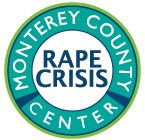First online book club meeting for Trauma Stewardship

April 13, 2020
by Lauren DaSilva, Deputy Director
Click here for an earlier post which provides an introduction to Trauma Stewardship.
We all arrive at this work because it is important to us personally. We ourselves may be survivors of sexual violence or someone we care deeply about is a survivor. We may feel acutely aware the role sexism plays in our society; and how sexism impacts our own lives and choices. We might experience an intrinsic motivation to somehow improve our communities. This work is not just work: it is personal; at times, it is political; and it can often be an assertion of identity to choose it.
The first couple chapters of Trauma Stewardship remind the reader that it is an honor and a privilege to do this work and that the people who entrust us with the stories of their lives deserve the very best from us. In Chapter 1 of Trauma Stewardship, An Everyday Guide to Caring for Self While Caring for Others, the author, Laura van Dernoot Lipsky writes:
“When we talk about trauma in terms of trauma stewardship, we remember that we are being entrusted with people’s stories and their very lives, animals’ well-being, and our planet’s health. We understand that this is a tremendous responsibility. We know that as stewards, we create a space for and honor others’ hardship and suffering, and yet we do not assume their pain as our own. We care for others to the best of our ability without taking on their paths as our paths...To participate in trauma stewardship is to always remember the privilege and sacredness of being called to help.”
It is difficult to find this sacredness in workplaces we frequently come into contact with. We’ve all been patrons of restaurants, stores, and governmental institutions in which we have been treated with little regard, patience, or interest; and we all know what it feels like to be considered a burden or a number or a pain in the neck for just being. We don’t know the reason why we are made to feel unseen, but sometimes I find myself searching for an answer. Is the server just having a bad day or maybe didn’t get enough sleep? Did the high school student at the gas station just get yelled at by their boss? Did the DMV associate just get their weekly productivity report dropped on their desk? It is a feeling of unease that leaves us guessing.
We cannot make the people who entrust us with their stories feel unseen, unheard, or disregarded, because the power of healing lies in being seen and listened to. However, everyone working in the field of trauma is in danger of compromising their own helping and healing intentions because of the work itself. Working in the field can, at times, be a huge emotional lift, the hours can be long, there is often much to do and little time or resources or help to do it, the work may trigger something about one’s own trauma history, and a million other big and small things that make checking out and burning out feel a bit inevitable. We cannot let this happen because survivors of sexual violence, child abuse, and human trafficking need direct service providers (us at MCRCC!) to be present and prepared to help achieve their goals to the absolute best of our abilities.
But how do we stay present, connected, and skilled at our work? Well, Laura says that first we must acknowledge the impact of trauma on our lives, on our work, and on our workplaces which she addresses in “Part Two: Mapping Your Response to Trauma Exposure.” Next time, we will discuss Chapters 3-4 (Pages 39 - 113) and with the following discussion questions:
-
What resonated with you most about Chapter Three?
-
Which of the 16 warning signs do you feel are most present within yourself?
-
How can you tell?
-
-
Which of the 16 warning signs do you feel are most present within the agencies you come in contact with?
-
How can you tell?
-
